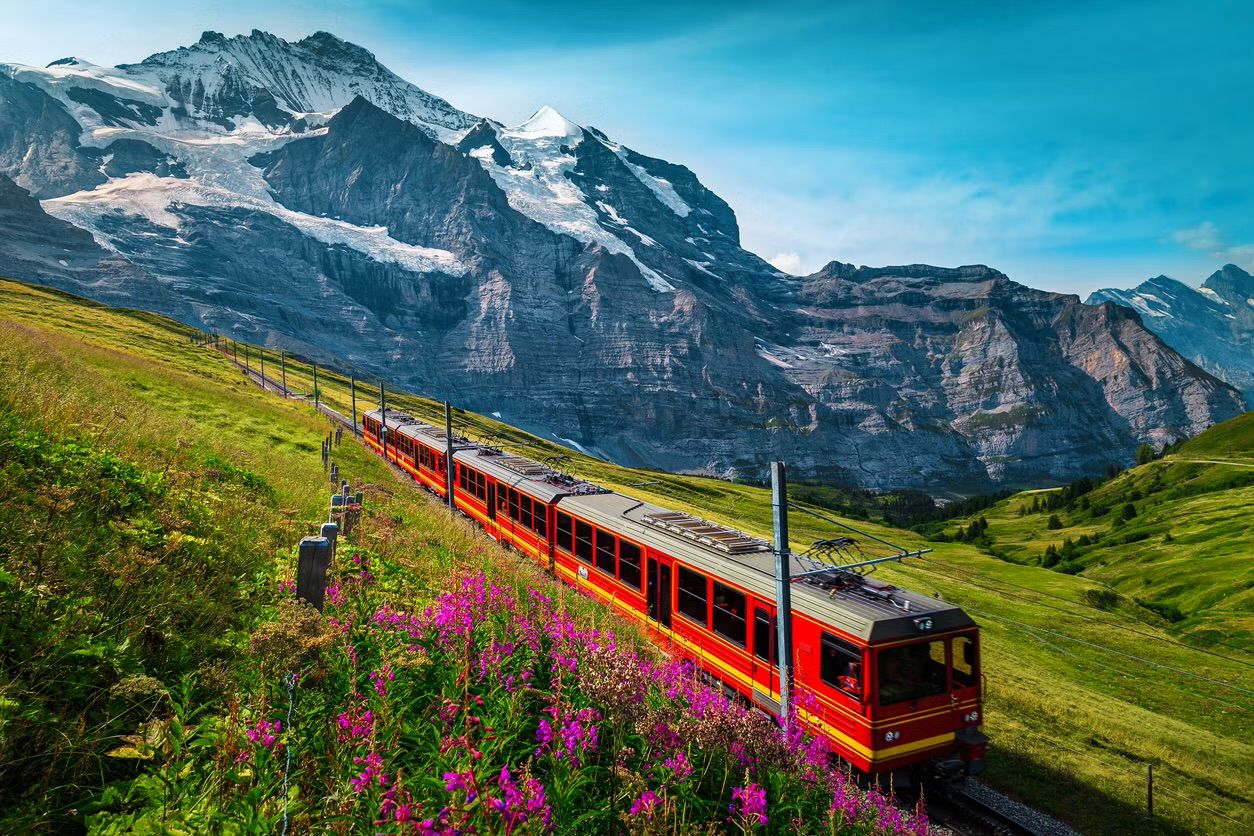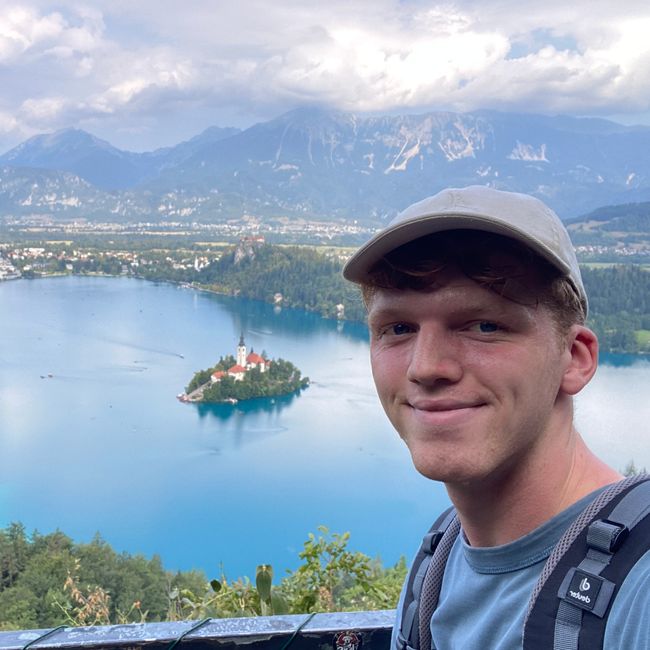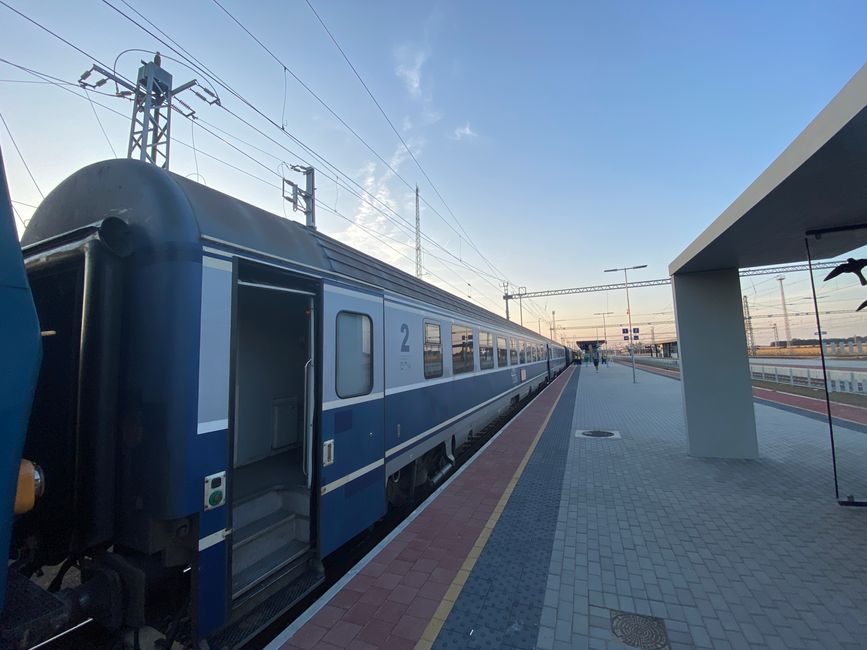Tag 9,5 - Train journey to Bucharest
نشرت: 11.09.2024
Already at the platform, a small crowd formed around the conductor, as some passengers, including myself, could not find their sleeping cars. He explained that the sleeping cars would be attached only in Romania. Until then, we should look for another empty seat.
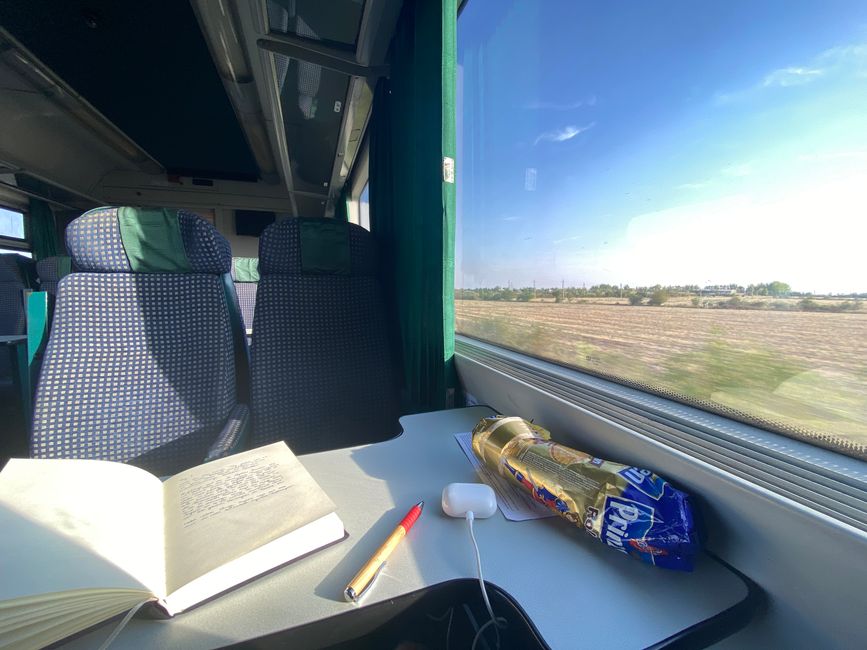
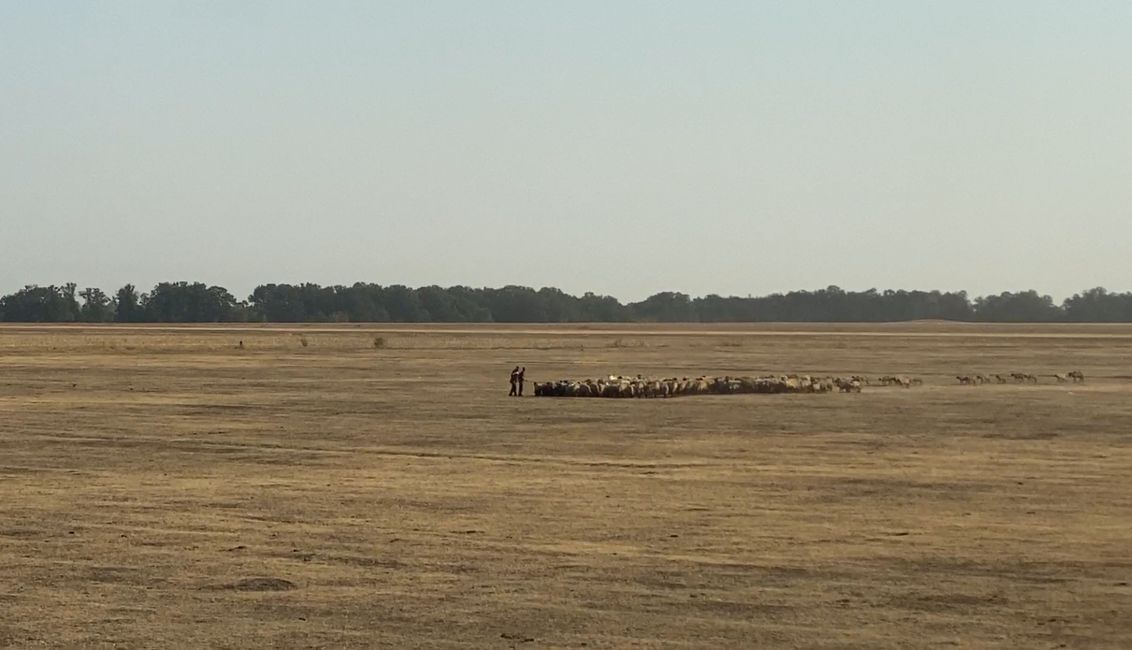
The journey first took us through the landscapes of Hungary. Along the tracks, small, quiet villages occasionally appeared amid the endless flatlands. During a longer stop in one of the villages, the Hungarian police boarded the train. After a brief scare, I realized we had reached the border and checks were ahead. Shortly after the border, we experienced the same in another language. There, we also received a new locomotive, along with the sleeping cars.
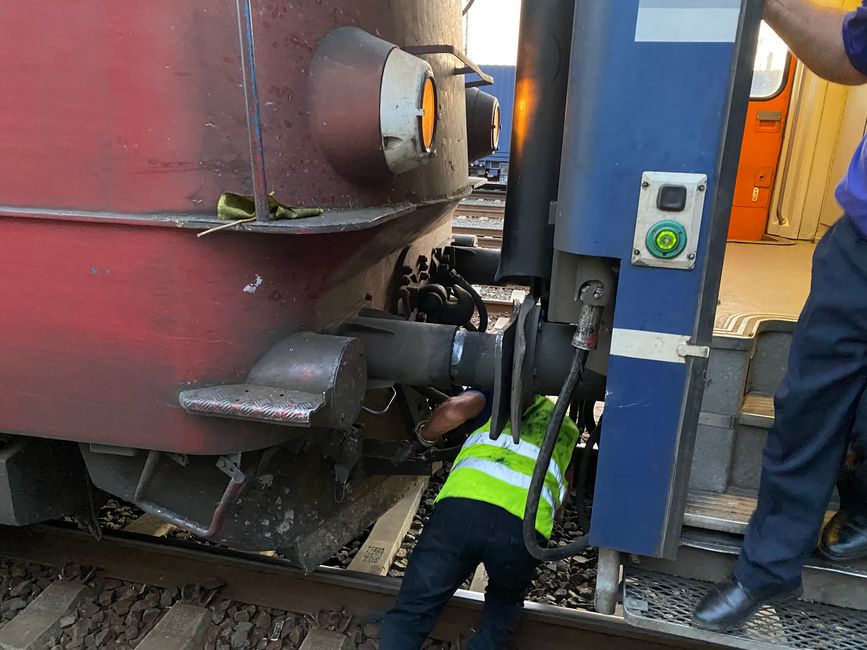
There, in a small Romanian village, I unexpectedly met six Saxons. They were also traveling on an Interrail ticket and wanted to go to Athens as well. We exchanged numbers and disappeared into our compartments. In my compartment, I also met two Germans who were heading to Bucharest. Together with a calm Romanian, we were four in the compartment, preparing our beds and soon went to sleep.
With my new earplugs, the noise from outside was completely blocked, and I could enjoy a wonderfully quiet night, with only a few exceptions.
The first sight in the morning from the train window revealed that we were now in Romania. In the villages we occasionally passed through, there were mostly small, primitive huts. Broken corrugated roofs were covered with tarps, trash was disposed of behind the house or in the fields, and doors and windows were often hard to find.
The people in the villages went about their daily lives: some worked in the gardens behind their huts, children played together on the streets, and now and then, the elders sat on a bench, cigarette in mouth, watching the passing train.
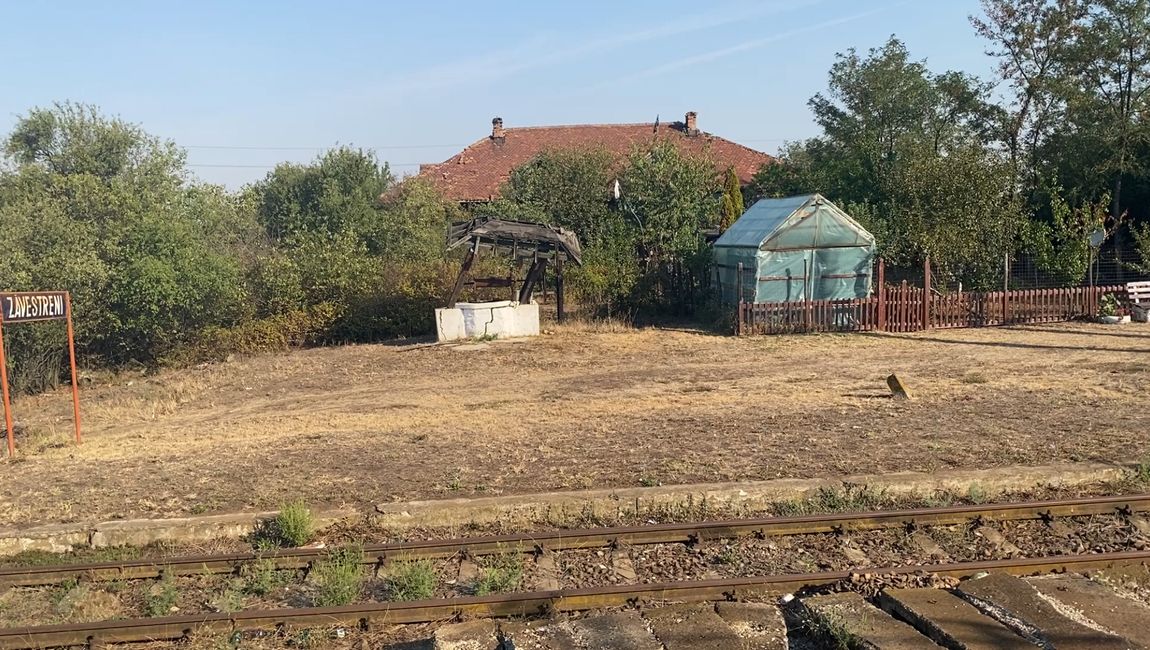
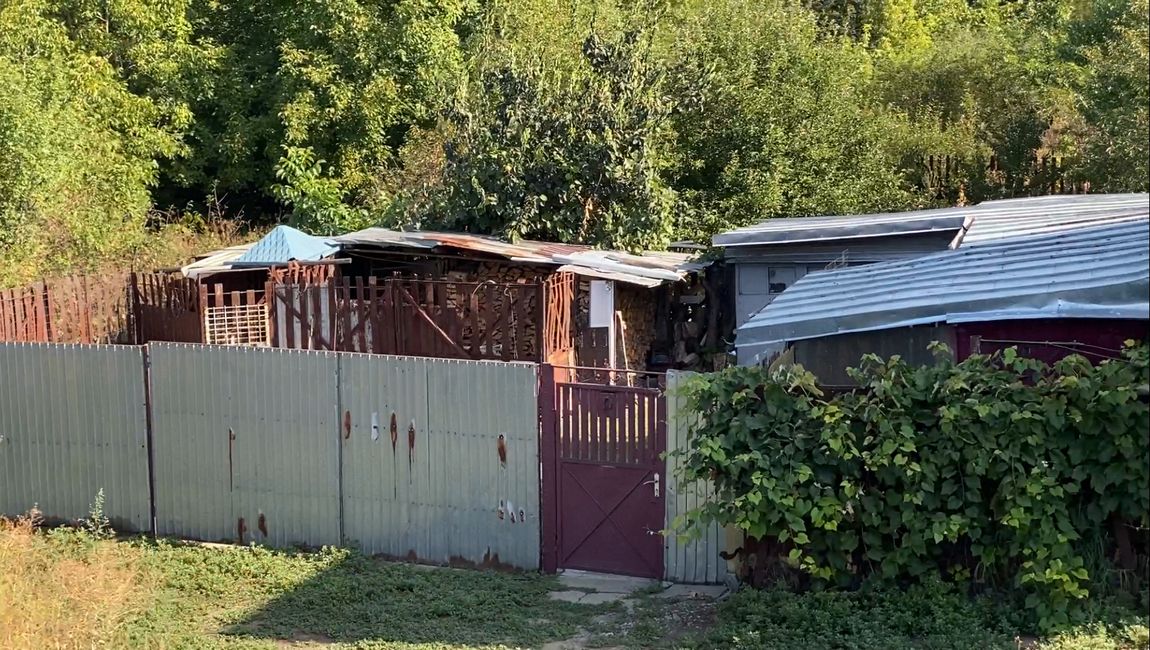
The entire scene in the countryside made a strong impression on me and fascinated me greatly. And soon, the train arrived at the capital's station, Bucharest.
إجابة
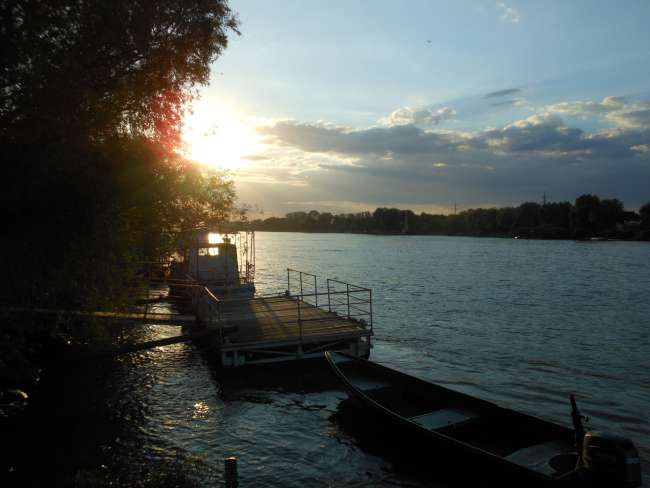
تقارير السفر رومانيا
